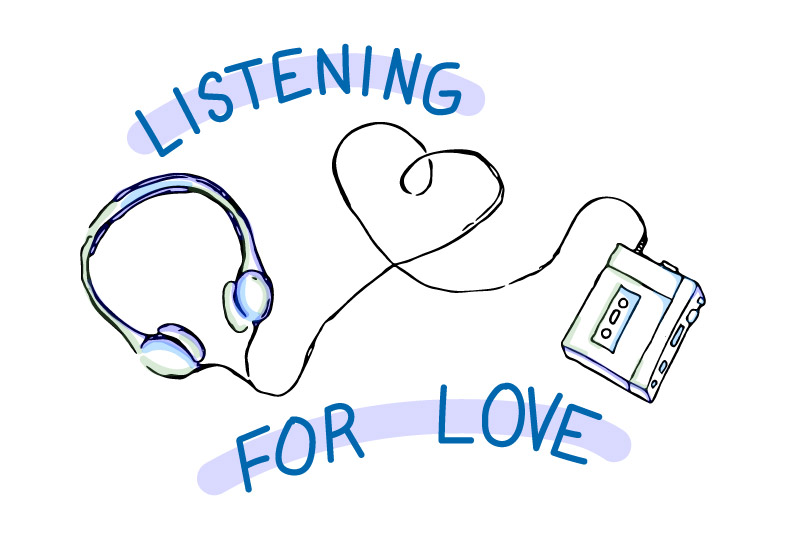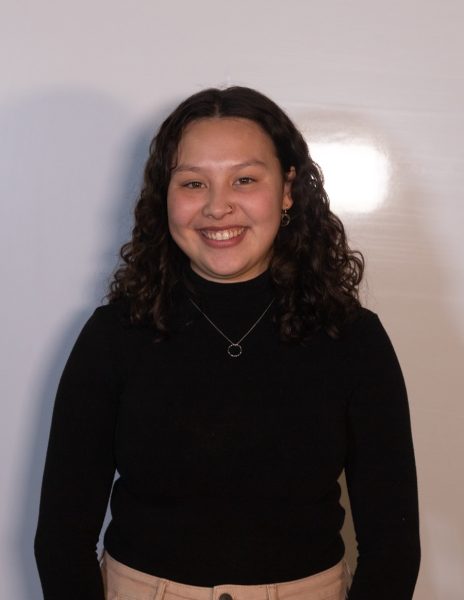With relationships at the heart of humanity, it only makes sense that a vast majority of media revolves around the same topic: love. In recent years, television in particular has become a platform where viewers are able to form deep connections to characters over a series of episodes, causing them to invest heavily into the characters’ relationships with each other. From dramas that follow a “slow burn” trope to reality dating shows, all avenues of love are explored. And to accompany those shows, comes a vast range of music.
I am not ashamed to admit that reality television is one of my vices. In particular, I have become an avid watcher of “Love Is Blind.” While the mindlessness of reality television may be what compels most, the depiction of love in dating shows — and the music chosen to represent that depiction — is deeply fascinating and impactful.
The music on “Love Is Blind” has become infamous for its wildly literal lyrics and intense sound. When anything remotely dramatic happens in the show, it is underscored by music that heightens that drama tenfold. For example, in Season 6, Episode 8, a song titled “Crash and Burn” by End of an American Experiment ft. Charlie Hardt plays amid a tense argument between partners Chelsea and Jimmy, showing the struggles of moving in together just weeks after meeting each other. The song features lyrics like “My heart is tired / Been caught in the fire / Too many times, gone up in smoke / Another turn / Crash and Burn.” These dramatic lyrics combined with a pop-heavy melody and an intense, synth-filled instrumental track makes this argument seem dire.
In more positive moments of romance, the lyrics and melodies remain quite cookie-cutter. In Season 6, Episode 12, “Marry Me” by Skyeler Kole plays while two other partners, Clay and AD, walk down the aisle. The lyrics could not be more fitting — or redundant — in this scene, Kole singing “I know, know, know, where I wanna be / maybe one day we’ll have a family / marry me.”
The intensity and blatantly obvious lyrics of the music in “Love is Blind” ignore the subtle nuances that make an impactful love (or break up) song. This reflects the nature of the show, where couples fast-forward through all of the intricate parts of a relationship in order to get down the aisle as quickly as possible. This depiction of love lacks heart, embodying the idea of what love should be, rather than showing a more genuine, natural journey of love.
While reality television has “reality” in the title, its structure and music promote a less all-encompassing picture of love, focusing more on obvious feelings and drama rather than the complexities of relationships. In contrast to these more generic, one-dimensional love stories in reality TV, it is fascinating how much more scripted, drama-based shows tend to exemplify the nuances of relationships, both through script and score.
In the drama “One Day,” a beautiful soundtrack is used to highlight the complexities of love, mirroring the unfolding relationship between main characters, Dex and Emma, over the course of 20 years. Songs like “The Book of Love” by The Magnetic Fields express the simplicities of love, and how simplicity is what makes relationships so beautiful. In moments of conflict, rather than using hyper-intense pop songs, the show makes use of more raw songs, like “Anyone Who Knows What Love Is (Will Understand)” by Irma Thomas.
This song features lyrics that seem to have been ripped right from the characters’ diaries, like “You can blame me / Try to shame me / And still I’ll care for you / You can run around / Even put me down / Still I’ll be there for you.” While these lyrics are no sunshine and rainbows, they express a more authentic, emotional depiction of love and heartbreak, as compared to the more hollow love and conflict in shows like “Love Is Blind.”
Many other scripted shows use music to depict love in unique ways. In the coming-of-age show “Heartstopper,” softer songs with more naive lyrics, like Beabadoobee’s “Dance with Me” set the scene for younger, innocent love. While it may no longer be running, the sitcom “New Girl” is famous for its slow burn relationships, accompanied by bright, upbeat songs when characters finally get together, like “Green Light” by Lorde. No matter what the show or genre, music has an immense impact on the way love stories are portrayed.
While the depiction of love in reality shows like “Love Is Blind” is not inherently negative, the generic music creates a hollow feel that lacks true emotional depth. In contrast, shows featuring more complex relationships use intricate music to create an emotional connection with audiences and tug on heartstrings. I certainly will still be tuning into Season 7 of “Love Is Blind” to witness all of the drama and outlandishly unoriginal music choices. However, if I want to really settle into an emotionally-rich script and soundtrack, I may just have to cue up “Heartstopper” or “One Day” (yet again).









